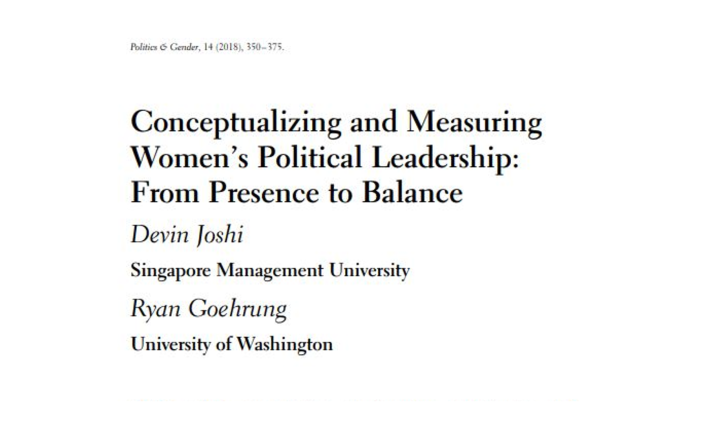Conceptualizing and measuring women’s political leadership: From presence to balance
Source: Cambridge University
This article conceptualizes an innovative understanding and measurement of women’s political leadership, theoretically justifies its application, and analyzes contemporary variation in its patterns through comparative case studies. In recent years, scholars of comparative government have studied with great interest the election of female prime ministers and presidents (e.g., Derichs and Thompson 2013; Jalalzai 2013) and cross-national variation in female members of parliaments (MPs) and cabinets (e.g., Bauer and Tremblay 2011; Paxton and Hughes 2017; Suraj, Scherpereel, and Adams 2014). Yet, when it comes to regions beyond Europe and the Americas, comparative empirical analysis of women’s political leadership (WPL) across national level governments has been largely neglected. Addressing this gap in the literature, University of Cambridge offers a new index that they believe has multiple advantages over the most commonly applied proxies for WPL.
Click here to see the academic article.

This article conceptualizes an innovative understanding and measurement of women’s political leadership, theoretically justifies its application, and analyzes contemporary variation in its patterns through comparative case studies. In recent years, scholars of comparative government have studied with great interest the election of female prime ministers and presidents (e.g., Derichs and Thompson 2013; Jalalzai 2013) and cross-national variation in female members of parliaments (MPs) and cabinets (e.g., Bauer and Tremblay 2011; Paxton and Hughes 2017; Suraj, Scherpereel, and Adams 2014). Yet, when it comes to regions beyond Europe and the Americas, comparative empirical analysis of women’s political leadership (WPL) across national level governments has been largely neglected. Addressing this gap in the literature, University of Cambridge offers a new index that they believe has multiple advantages over the most commonly applied proxies for WPL.
Click here to see the academic article.